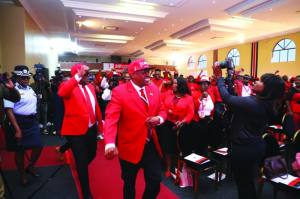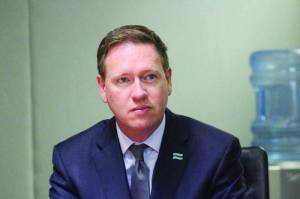In an article to remember the near disaster for the nation 34 years ago when Botswana’s presidential jet OK1 was nearly blown out of the Angolan sky, renowned historian, journalist and author, Dr Jeff Ramsay, ably recaptures the incident and mentions by name the people who were on President Ketumile Masire’s entourage to the SADCC summit in Luanda.
However, he includes Douglas Tsiako as also having been on the flight as well. Dr Ramsay is mistaken about this, but I can understand how this may have come about.
Exclusive Other than being a Motswana who, like others, would have been most sorrowed had the disaster not been averted, my only ‘involvement’ with the unfortunate incident was being able to obtain exclusive interviews with key people like Captain Arthur Rickets and Albert Scheefers, who was promoted to the rank of Colonel only some time later, as well as with sources inside the Angolan government through members of the ruling MPLA government with whom I was serving on a regional committee chaired by Thabo Mbeki of the ANC in exile then.
The purpose of this committee, the Federation of Southern African Journalists, was to put liberation movement across the region on an information and propaganda offensive against an incessant onslaught from powerful news agencies of the West whose governments were on the side of racist minority regimes in Namibia and South Africa and anti-government rebels in Mozambique and Angola. By policy and purpose that reflected the common position of their governments, the Western news agencies referred to legitimate liberation movements in our region as terrorist organisations. It is notable that inspite of the testimonials in his praise after he died, the name of Nelson Mandela had remained on the US government terrorism watch list until 2008.
Added dimension The resulting stories from both the exclusive interviews and mundane sources were published in Mmegi where I was Deputy Editor in an atmosphere where not much information was coming openly. They attracted considerable interest here at home and around the world because it was a difficult time in our region where the Cold War was always very hot. The near-fatal disaster in which President Masire and his entire entourage almost perished occurred under these circumstances.
An added dimension for Botswana was that the country’s airspace was under the control of apartheid South Africa and the racist regime used the anomaly to its fullest advantage to ferry arms and other war materials to the headquarters of UNITA at Cuito Cuanavale in southeastern Angola where the rebels, under the command of Jonas Savimbi, supervised their occupation of nearly half of the former Portuguese colony with the full support of Western powers, especially the United States.
The nightly flights from South Africa to Cuito Cuanavale through Botswana airspace were a cause of much consternation for the Angolan government whose wish it was for Botswana to take control of its own airspace, and thus to be in a position to raise a clear and cogent protest at the United Nations and other international platforms if the apartheid regime violated it with flights to UNITA.
Predicament It can only be assumed that Botswana - clearly in a predicament as the most frontline of the Frontline States - had serious encumbrances that prevented it from taking control of its own airspace from forces outrightly hostile to regional interests, especially peace and stability in a fellow SADC state.
One of these concerns must have been the real and present prospect of reprisals, many such having been visited upon the nation for various excuses for apartheid South Africa to enforce its will. It was this predicament that Pope John Paul II, on a wing-footed visit to Botswana on 14 September 1988, was referring to when he described our country as “an island of peace in a troubled sea”. Founding president Sir Seretse Khama had in earlier years used a similar analogy when he spoke of his country as an island of sanity in an ocean of madness.
American civil rights leader, Jesse Jackson, summed it up when, emerging from an illuminating meeting with our foreign affairs minister Dr Gaositwe Chiepe in Gaborone, he likened the situation of Botswana to being “in the belly of the beast”. Mercifully, those troubled times are behind us but will remain a reference point for all of us to protect and grow what we have. Jeff Ramsay did this well in his memorial article that is here being referred to.
I fully understand how he may have made the mistake that I here correct that I was on that flight because the work attracted much attention here and abroad and corresponding recognition for the journalist behind it in awards and other forms. Jeff and I were quite close at the time and worked together – alongside others like Itumeleng Sabone, Felicitus Mashungwa, the late Rampholo Molefhe and the late Michael Olivier - on several fronts, notably in consultations with the Office of the President in matters of interest around freedom of the press. I thank him for the apt memorial article.







